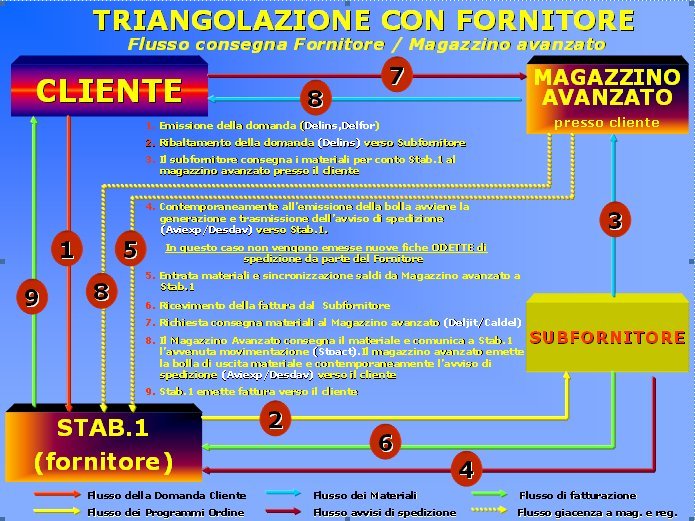
For companies working in the auto-parts sector, material logistics is the most crucial component of the whole supply chain.
The supplier ( either first or second degree)
UNDERGOES manufacturer’s rules:
– Weekly or daily demand, measured in hours…
– Distribution depot (vendor banking – front-end warehouse)
– EDI messages for different types of transact businesses
(delfor – delins – stoact- deljit- kanban- caldel – Pick-up sheet – Stock status – Slip schedule ecc..)
MUST respond quickly (sometimes hours) to demands:
– deal with the different clients and their specific EDI messages
(repord – aviexp – desadv – self-billing – invoice ecc…)
NEEDS a system able to turn these bounds into OPPORTUNITIES.
By exploiting Si5-automotive, several major industrial groups of this sector have found the solution to their needs thanks to the specific features, which have been developed in order to respond to the standards of the automotive sector, amongst which:
- Multiplant Management:Several operators of the automative industry need the possibility to deal with material flows and exchanges, commons to people operating with many plants and/or companies;
- Unique MRP able to deal with the needs of each plant at the same time (one’s need becomes another one’s production plan)
- Automatic Mouvemets amongst the different plants(the shipment from a plant creates the entry of materials in another)
- Integrated Invoicing among plants belonging to different companies, in which selling shipments create an automatic flow for the following managerial processes (one’s receivable invoicing becomes another one’s payable invoicing, automatic flow of invoicing verification and accounting)
- Parametric Centralization of corporate functions helping to define for each plant the management competencies (e.g. centralizing data base management in a unique technical office, centralizing purchase, clients’ order management, administration, quality, etc…)
- Automatic Acquisitions of excess materials amongst the different plants in order to reduce stocks ( whereas it’s justified to move materials).
- Consolidated Costs in case of exchanges among the different companies of the group, specific treatments will take place allowing to calculate the real cost of the product aside from conveyancing costs amongst the different companies.
- Conto economico di gruppo, di azienda e di stabilimento
NOT ONLY EDI CLIENTS
EDI suppliers with the same standards and typologies of messages which are used for clients, to make the whole supply chain react promptly to the changing demand and benefit from the telematic flow relating to electronic documents received by the suppliers (send order schedules, communication about picking up from front-end warehouses, receive notes, bills, lists etc…) The web portal can be activated for the less structured suppliers.
EDI AND THE SUPPLY CHAIN : EXEMPLE OF TRIANGULATION

DELOCALIZATION
If manufacturers “delocalize”, suppliers should be able to do it as well; whereas for the first level of supply this need is driven by the manufacturer, for the next levels availability and ability to follow the costumer are becoming an important standard in costumers’ assessment on choosing suppliers; delocalization can also be an opportunity set out by a need of holding down transformation costs.
Si5 is present in 22 countries, available in 11 languages, ideograms as well.
Moreover
- material movements through barcodes and radiofrequency (material entry, location, picking up for production, payments, picking up for shipments and pallets set up etc…)
- Blanket orders management for costumers and suppliers but also for internal production
- Production scheduling
- Management in subcontracting of component selling account
- Purchasing, management of price breakdown and “metal base” treatment
- Unit for both supplier and integrated process quality
- Gathering of production data and final balacing of labour
Si5 is not only conceived for flows, amongst our costumer, many work in different markets in terms of management. They have at the same (sometimes in the same plant) typologies of mix productions from batches to orders (pressing but also mould construction orders).



